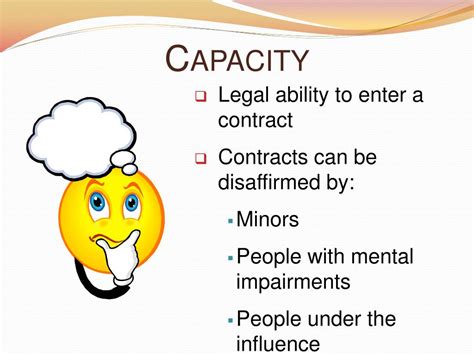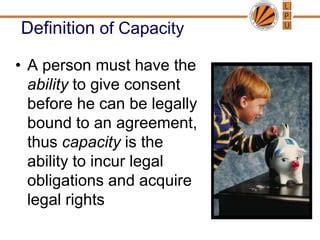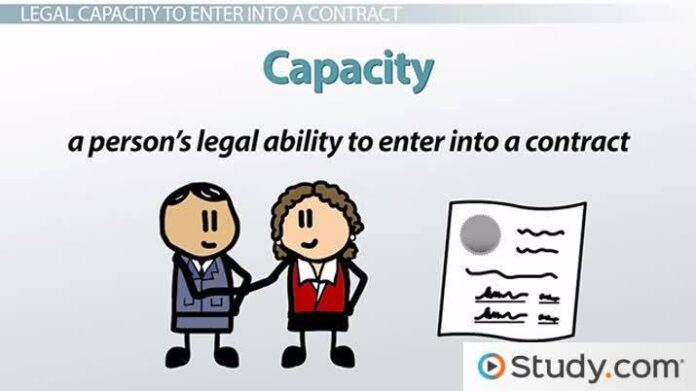Legal capacity is a crucial concept in law, determining an individual’s ability to enter into binding agreements, make decisions, and take legal actions. However, not everyone is granted full legal capacity, particularly minors and those deemed incapacitated. This article explores the intricacies of legal capacity, focusing on the unique circumstances faced by minors and incapacitated individuals. From understanding the legal rights and responsibilities of minors to the protections afforded to incapacitated persons, we will delve into essential guidelines that shape these legal distinctions. Additionally, we will examine the processes involved in determining incapacity and how it impacts contracts and other legal decisions.
Investigate this topic thoroughly with alijyun.com
1. Definition of Legal Capacity
Legal capacity refers to an individual’s ability to understand and participate in legal proceedings, make decisions, and enter into binding contracts. It is a foundational principle in law, ensuring that individuals possess the mental and legal competence necessary to engage in various legal activities. Legal capacity is generally presumed in adults, meaning they have the full ability to manage their affairs unless proven otherwise. However, certain groups, such as minors and incapacitated persons, may lack full legal capacity due to age, mental illness, disability, or other factors. When legal capacity is absent or limited, specific legal protections and procedures come into play to safeguard the rights of these individuals. Understanding legal capacity is crucial for determining who can act on their own behalf in legal matters and who requires assistance, such as through a guardian or conservator, to ensure their interests are adequately represented and protected.

2. Legal Capacity in Relation to Minors
Minors, generally defined as individuals under the age of 18, have limited legal capacity due to their age and perceived lack of experience in making informed decisions. In most jurisdictions, minors cannot enter into binding contracts, make significant legal decisions, or be held fully responsible for certain actions. The law assumes that minors lack the maturity and judgment necessary to understand the implications of legal commitments, which is why legal protections are in place to prevent exploitation and ensure their best interests.
However, there are exceptions to this rule, such as when minors are emancipated, marry, or are granted specific rights by the court to act independently in particular legal matters. Additionally, minors may still engage in certain activities, like opening a bank account or consenting to medical treatment, often with parental consent. Legal capacity in relation to minors is a nuanced area that balances protecting young individuals while gradually allowing them to gain autonomy as they approach adulthood.

3. Legal Rights and Responsibilities of Minors
Minors, despite their limited legal capacity, still possess certain legal rights and responsibilities. These include the right to education, protection from harm, and access to essential services like healthcare. In many cases, minors also have the right to express their views in legal matters affecting them, such as custody or adoption cases. Additionally, minors may consent to medical treatment under specific conditions, such as emergencies or when seeking reproductive health services, depending on the jurisdiction.
On the responsibility side, minors are held accountable for their actions in ways that differ from adults. While they may not face the same legal consequences for certain offenses, they can still be subject to juvenile court proceedings for criminal activities. Minors are also expected to comply with laws regarding school attendance, curfews, and other regulations designed to protect their welfare. The legal system aims to balance their rights and responsibilities, considering their developmental stage and capacity to understand the consequences of their actions.

4. Circumstances Leading to Incapacity
Incapacity refers to the inability of an individual to make informed decisions or manage their affairs due to mental, physical, or cognitive impairments. There are various circumstances that can lead to a person being considered legally incapacitated. Common causes include mental health disorders, such as severe depression, schizophrenia, or bipolar disorder, which may impair judgment and decision-making abilities. Cognitive impairments, like dementia or Alzheimer’s disease, often result in the gradual loss of capacity to handle everyday tasks and legal matters.
Physical conditions can also contribute to incapacity, particularly when they affect an individual’s ability to communicate or comprehend information. Severe injuries or illnesses that lead to unconsciousness or a vegetative state are clear examples. Developmental disabilities, including conditions like autism or intellectual disabilities, may also limit a person’s legal capacity, depending on the severity of the impairment.
Substance abuse, whether related to drugs or alcohol, can create temporary or permanent incapacity if it impairs a person’s ability to understand the consequences of their actions. Determining incapacity typically requires thorough medical and psychological assessments, and when established, legal protections such as guardianship or conservatorship may be implemented to ensure the affected person’s well-being and interests are safeguarded.
5. Legal Protections for Incapacitated Persons
Legal protections for incapacitated persons are designed to safeguard their rights, well-being, and financial interests when they can no longer make decisions independently. These protections typically come in the form of court-appointed guardianship or conservatorship, where a trusted individual is granted the authority to make decisions on behalf of the incapacitated person. Guardianship usually involves managing personal and medical decisions, while conservatorship focuses on financial matters.
To initiate these legal protections, a thorough assessment of the individual’s mental and physical capacity is conducted, often involving medical evaluations and testimony from family members or professionals. Once incapacity is established, the court oversees the appointment of a guardian or conservator, ensuring that the appointee acts in the best interests of the incapacitated person. This process is carefully monitored to prevent abuse, and the guardian or conservator is typically required to provide regular reports to the court.
In addition to guardianship and conservatorship, other legal mechanisms, such as powers of attorney, living wills, and healthcare directives, can be established in advance to ensure that an individual’s wishes are respected should they become incapacitated. These tools offer a way for people to retain some control over their future care and decisions, even when they can no longer make those choices independently.
6. Guardianship and Conservatorship Explained
Guardianship and conservatorship are legal frameworks established to protect individuals who are deemed incapacitated and unable to manage their personal or financial affairs. Guardianship generally refers to the authority granted to a guardian to make decisions about the personal and medical well-being of the incapacitated person. This may include decisions about living arrangements, healthcare, and daily care needs. The guardian is legally obligated to act in the best interest of the individual and ensure their basic needs are met.
Conservatorship, on the other hand, specifically deals with managing the financial affairs of an incapacitated person. A conservator is appointed by the court to oversee assets, pay bills, and manage property on behalf of the incapacitated individual. Like guardianship, conservatorship comes with strict legal responsibilities, and the conservator must regularly report to the court about the management of the person’s finances.
Both guardianship and conservatorship are typically last-resort measures, implemented only after less restrictive alternatives have been considered. The court closely monitors both roles to prevent abuse or neglect, ensuring that the incapacitated person’s rights and interests are protected throughout the process. These legal arrangements provide vital support for individuals who can no longer advocate for themselves.
7. Assessing Mental Competence
Assessing mental competence involves evaluating an individual’s ability to understand and make informed decisions about their personal, financial, and legal matters. This process is crucial for determining whether a person can independently manage their affairs or if they require legal protections like guardianship or conservatorship.
The assessment typically begins with a comprehensive evaluation by mental health professionals, including psychologists or psychiatrists. These experts conduct interviews, cognitive tests, and review medical records to gauge the individual’s cognitive functioning, decision-making ability, and understanding of relevant information. The evaluation may also consider the individual’s ability to communicate effectively and comprehend the consequences of their decisions.
In some cases, a court may request additional assessments or testimony from family members, caregivers, or other professionals familiar with the individual’s condition. The goal is to develop a clear picture of the person’s mental capacity and how it impacts their ability to handle legal and financial responsibilities.
The findings from these assessments inform the court’s decision on whether to appoint a guardian or conservator. The process is designed to balance the individual’s autonomy with the need for protection, ensuring that their right
8. Legal Procedures for Determining Incapacity
The legal procedures for determining incapacity involve a structured process to ensure that decisions are made fairly and with due consideration of the individual’s rights. The process typically begins with a petition filed by a concerned party, such as a family member or legal representative, requesting a court to assess the individual’s capacity.
The court then appoints a medical professional, such as a psychologist or psychiatrist, to conduct a thorough evaluation of the individual’s mental and physical condition. This evaluation includes cognitive testing, interviews, and a review of medical history to determine the extent of the incapacity.
Following the assessment, a court hearing is held where evidence from the evaluation is presented, and testimony may be provided by medical experts, family members, or other relevant parties. The court reviews all evidence to decide whether the individual meets the criteria for incapacity and, if so, what legal protections are appropriate.
If incapacity is established, the court may appoint a guardian or conservator, outlining their responsibilities and monitoring their actions to ensure the individual’s well-being and interests are safeguarded.
9. Impact of Incapacity on Contracts and Legal Decisions
Incapacity can significantly impact an individual’s ability to enter into and uphold contracts and legal decisions. When a person is deemed incapacitated, any contracts or agreements they entered into while lacking capacity are generally considered void or voidable. This means that the contracts may be legally invalidated, and the parties involved may be required to return to their pre-contractual status.
For instance, if an incapacitated person signed a lease or a financial agreement, these contracts might be challenged and potentially overturned if it can be demonstrated that the individual did not understand the terms or implications of the agreement at the time of signing.
Similarly, legal decisions made by an incapacitated person, such as changes to a will or other estate planning documents, may be contested. Courts often scrutinize these decisions to ensure that they were made with full understanding and intent.
To manage these situations, legal frameworks like guardianship or conservatorship are put in place to ensure that any legal decisions or contracts are handled by a responsible party who can act in the best interests of the incapacitated individual. This helps protect their assets and personal interests while ensuring that any legal matters are addressed appropriately.
Understanding legal capacity is essential for ensuring that individuals who are minors or incapacitated are protected and their rights upheld. From the definition of legal capacity to the specific protections and legal procedures involved, each aspect plays a crucial role in safeguarding those who cannot fully manage their own affairs. By implementing appropriate legal measures, such as guardianship and conservatorship, the law aims to balance the need for protection with respect for individual autonomy. Ensuring that these legal frameworks are effectively applied helps maintain justice and support for vulnerable individuals.
alijyun.com

